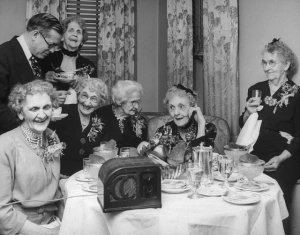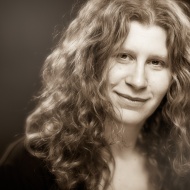
Natalie and I were a couple of kids when we met in a Freshman Studies writing class in 1987. We sat at a round table, reading from a poetry book our professor assigned, and from our own stories, sharing the vast wisdom of our 18 years.
After graduating from Sarah Lawrence College, Natalie went on to earn her MA in History from the University of Toronto. Today she is a history editor at a university publishing house. She spends most of her professional time reading about the Middle Ages, the Renaissance and the Reformation and spends most of her personal time reading about the 20th century.
Natalie has graciously agreed to be a guest blogger on two of my favorite topics: Compassion and Books.
An Empathy Reading List
by Natalie Fingerhut
I was born into an upper-middle class, Jewish household in suburban Toronto. I heard the word “nigger” fairly often and called boys that I didn’t like “fags.” I did not hear about Indigenous people until my first year at university. Or maybe I did but they were referred to by another racial slur.
I grew up believing that all Arabs were bad. Israel was David and the rest of the Middle East was Goliath. There was a God and he favored Jews.
Once I discarded my Judy Blume and V.C. Andrews and started to read the history of the 20th century, I began to realize two things that silenced my youthful prejudices.
Under conditions of terror and uncertainty, people just like me are capable of gassing 10-year-old girls.
Beneath our religion, nationality, and our other allegiances to various groups, we are all just human beings.
After reading the history of the last century, I became more empathetic towards people. Kinder, gentler. It became harder to turn my back on human pain and suffering.
As many of you know, the humanities and social sciences are in the dog house right now. As a history editor, I don’t think this is a great trend. History—as well as other subjects in the humanities and social sciences— has a lot to teach us, not the least of which is empathy.
Empathy is essential to counter all the hate and abuse currently on the news and on social media.
So…here is a list of five books that made me a more empathetic person.
1. 1984 by George Orwell
I read 1984 every other year. It is a powerful reminder of the dangers of groupthink and the power of terror. We want to believe that we would never succumb to 2 + 2 = 5, but if we lived in Winston Smith’s world, how many of us could really resist?
2. The Road by Vasily Grossman
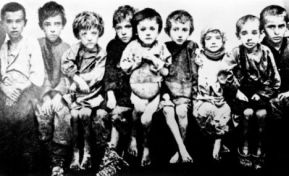
Vasily Grossman was a Jewish journalist in Stalin’s Russia who was embedded with the Russian Army during the battle of Stalingrad. The Road contains his essays, short stories and journalism.
Grossman’s first hand account of the Treblinka death camp whose operation he personally witnessed is one of the most harrowing primary sources I’ve read.
3. Nothing to Envy: Ordinary Lives in North Korea by Barbara Demick.
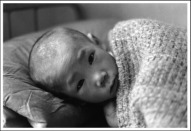 Los Angeles Times reporter, Barbara Dimick, documents the lives of six North Koreans trapped in a totalitarian world without hope.
Los Angeles Times reporter, Barbara Dimick, documents the lives of six North Koreans trapped in a totalitarian world without hope.
While some of us may think that totalitarian regimes are confined to the 20th c, North Korea is a reminder that they are not. Orwell’s Oceania remains alive.
4. Haing Ngor: A Cambodian Odyssey by Haing S. Ngor.
Some of you may remember Ngor from his role in The Killing Fields which helped bring awareness of the Cambodian genocide and the Khmer Rouge to North Americans. Ngor, however, wasn’t just playing a role. He himself was a victim of the Khmer Rouge’s extremist ideology. The Khmer Rouge, incidentally, has been compared to today’s menace, ISIS.
5. Humanity: A Moral History of the Twentieth Century by Jonathan Glover.
Glover delivers a devastating account of what normal people are capable of doing to each other when our “moral resources” are lost: respect for people’s dignity, sympathy, moral identity (what kind of person we think we are), moral imagination (when we are able to clearly understand what the impact of a current norm or official policy will mean for real people), and skepticism.
6.The Auschwitz Volunteer: Beyond Bravery by Witold Pilecki.
A few days ago, in an effort to avoid getting sucked into the recent hate-filled, knee-jerk responses on my Facebook feed about Muslims, I picked up this book. It contains a 1945 report on Auschwitz by Captain Witold Pilecki.
Pilecki was a captain in the Polish Home Army who volunteered to be arrested and sent to Auschwitz to report on activities in the death camp and to set up a resistance movement. You can see why the subtitle is “Beyond Bravery.” Let me share with you a short excerpt:
It was Krankenmann’s responsibility to finish off as quickly as possible the almost daily intakes of prisoners. Clearly this man’s character was well suited to his duties.
If someone inadvertently moved a few centimeters too far forward, Krankenmann would plunge the knife carried in his right sleeve into the victim’s stomach.
He who, through an excess of caution, moved too far back, received a thrust in the kidneys from this murderer running around the ranks.
The sight of the falling man kicking in the sand and screaming drove Krankenmann into a rage. He would jump onto the man’s chest, kick him in the kidneys, in his private parts, finishing him off as quickly as possible, which forced us to stay silent.
This sight ran through us like an electric current.
– Witold Pilecki
Shocks you right into silence, yes? Makes you reconsider blasting some Jew, Christian or Muslim on Facebook, right?
That’s a good thing. We need to read material like this—even though it is difficult– so that we are shocked into an awareness and understanding that this is what people are capable of doing to other human beings. This is what happens when we hate. This is where a lack of empathy can lead us. 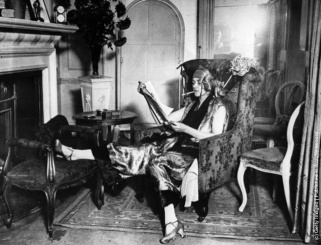
History is a valuable teacher. We need to learn its lessons.
You are what you read.
